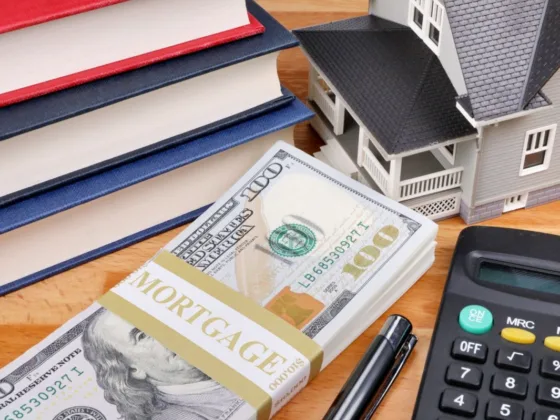Table of Contents Show
The Real Estate industry has grown to be a stable and luxurious economic nesh in the world today. The industry is famed for its ability to offer passive income to investors and the opportunity to build and diversify investor portfolios. It boasts of being a lucrative investment fountain to several wealthy persons of the world.

At the heart of the industry is the valuation of properties in order to determine their market worth. This is a necessary prerequisite to all transactions within the real-estate sector- whether buying, selling, leasing, or renting.
Property valuation forms the bedrock on which investor decisions are made and consequently money gained or lost.
Read Also:
- US Standard Products: Why the Construction Sector Is Thriving During Covid-19
- 5 Most Important Home Design Things that Property Valuers Consider
- How Much is the Driveway Value into Your Property Valuation?
- One Thing that Helps You Increase Property Value Significantly
- How COVID-19 Is Affecting California Property Managers
- The Do’s and Don’ts of Buying a Pre-Owned Home
- Global Property Forecasts and Trends for 2020
- 8 Best Real Estate Tips for Buyers in 2020
General Effects of COVID-19 on Property Valuation
Most property valuation takes place through on-site visits. Physical examinations have been useful to more accurately determine the market value range of the property by assessing features such as the size, style, and design of the building, the location, fixtures, infrastructural amenities, or lack thereof of the property.
Any faults in the property are also noted and an all-encompassing accurate valuation report is documented.
However, with the advent of the COVID-19 pandemic and the implementation of the social-distancing policy, adverse effects have been occasioned on valuation companies and the real estate industry at large.
Large independent valuation companies world-over such as CBA, Westpac, and ANZ have opted to re-strategize in order to mitigate the pending risk of grave loss of business and income as the pandemic continues.
For most valuers, it has become very difficult and nearly impossible to perform any physical examination of the property.
The pandemic has occasioned several valuation cancellations and at best indefinite rescheduling and the number is feared to rise with time. With a lack of valuations, a similar ill arises.
“According to AFR” As the C.E.O. of Australian Property Institute, Amelia Hodge states, “People are not settling loans because they don’t have values.”
Similarly, most valuation companies fear to send their personnel for on-site inspection in order to safeguard their employees’ health and wellbeing. This has led to a near standstill to all physical valuations.
Adelaide’s Property Market
Adelaide is the fast-paced urban capital of South Australia. It offers a vibrant urban lifestyle to its population. Adelaide has a vibrant real estate diversification, ranging from single rooms to luxurious penthouses.
Its acclaimed real estate market has seen tremendous growth over the years, sighting more promising forecasts for the property market in the years to come.
Housing values have steadily increased throughout all of Australia’s capital with Sydney and Melbourne property markets being the highest in value.
Increases in property values’ in Adelaide have been witnessed on the more affordable end of the housing spectrum.
There are more transactions on that front as compared to the high-end bit of its property market. This has ensured the general increase of its property values more specifically since the downturn in 2018 into 2019.
Effects of COVID-19 on Property Values in Adelaide
Due to the COVID-19 crisis, forecasts foretelling the lucrative increase in the Adelaide property market have since been proven naught.
According to Core Logic Housing Market updates, since January, Adelaide house values have continued on an incremental trajectory.
In February, Adelaide home values reached an all-time high recording an increase of 1% to 2.6% in the local unit home values and lower quartile homes respectively.
Upon reaching late March, the effects of the pandemic on the market became more apparent.
Here are some ongoing effects occasioned on Adelaide’s property market that you should know about:
Weakening growth trend in Housing Values
This is attributed to the general economic uncertainty and social distancing policy in place. The growth rate of Adelaide’s property market since late March has been at its lowest.
An increase in joblessness within the city due to the pandemic has also led to reduced property transactions during this duration.
Sporadic changes in property values
Due to the general state of uncertainty and consumer’s general lack of morale and confidence, it is difficult to guarantee that a certain trend will continue.
This is because, during moments of economic recession, unprecedented sporadic movements and patterns in the market may ensue.
More cautious lending practices
Banks have opted to impose more stringent qualifications for one to successfully apply for a loan. This has resulted in a reduced number of transactions in the property market, occasioning great loss on valuers in Adelaide.
However, more positive effects have also been occasioned by the pandemic. These are:
Introduction of automated valuation methods
Technology has been embraced in order to envision a way to ensure valuation takes place and transactions continue unabated.
Automated valuation systems have been set up to value properties thus eliminating the need for an on-site valuation. This has helped valuers in Adelaide do their work at the comfort and security of their homes.
Leniency programs
These programs offer low-interest rates for property-related transactions in a bid to sustain property transactions in the market. They are primarily in play in banks and financial lenders.










